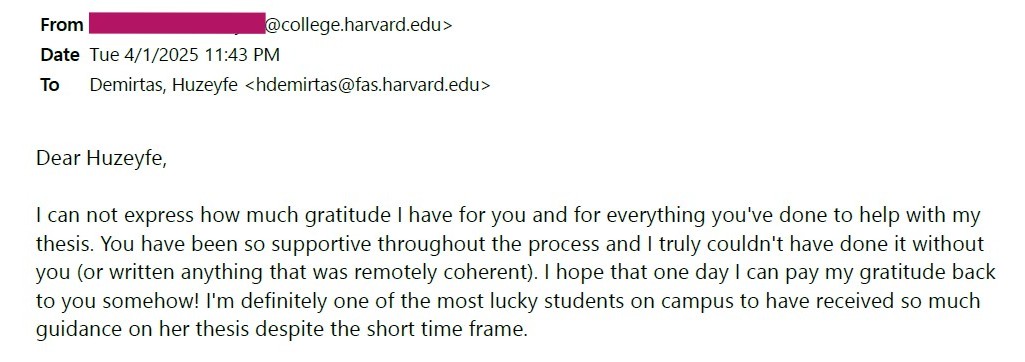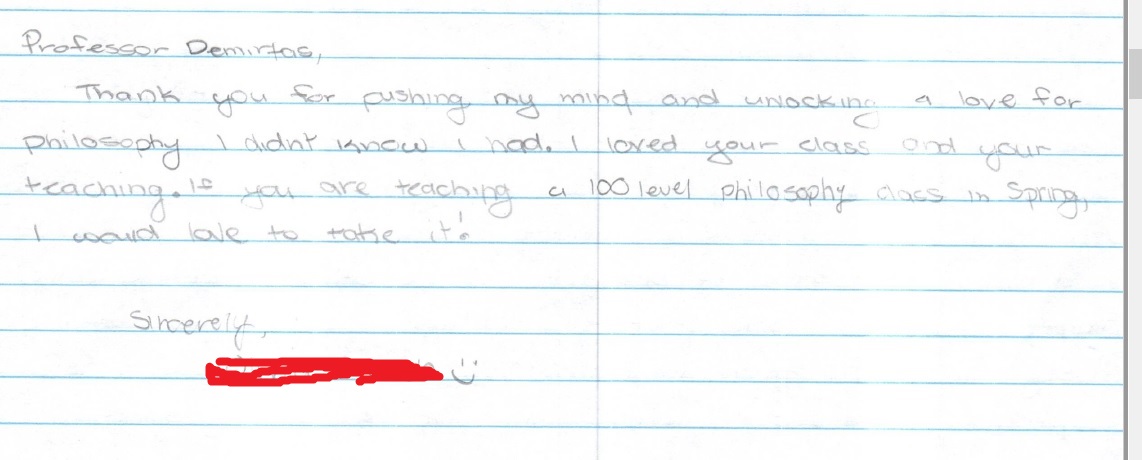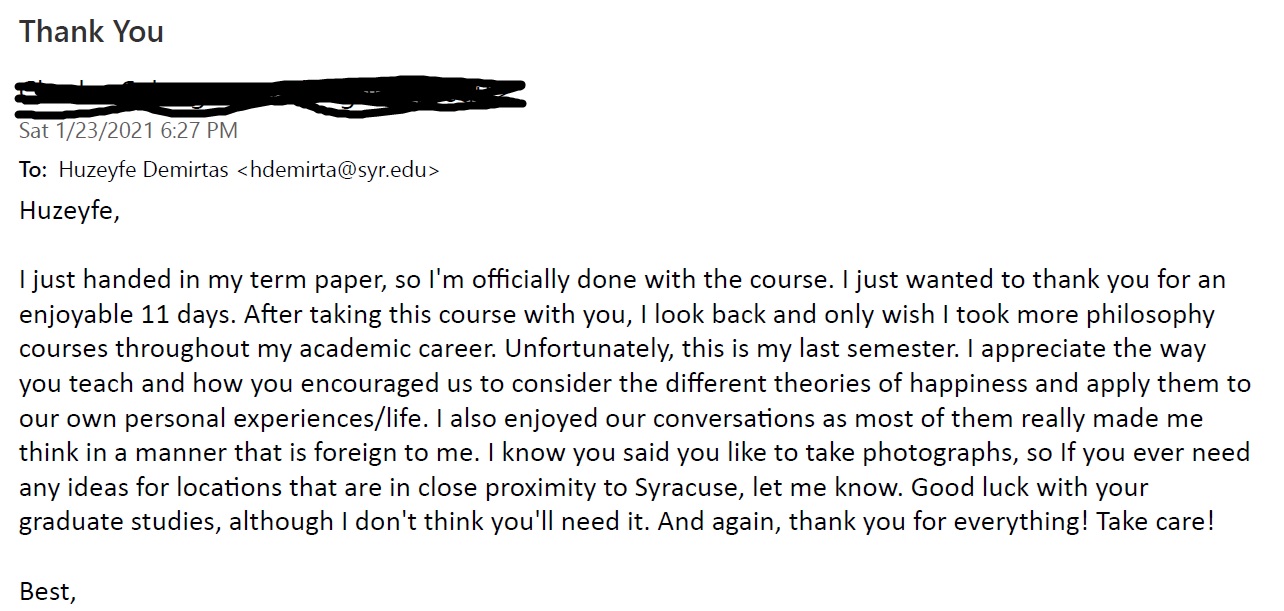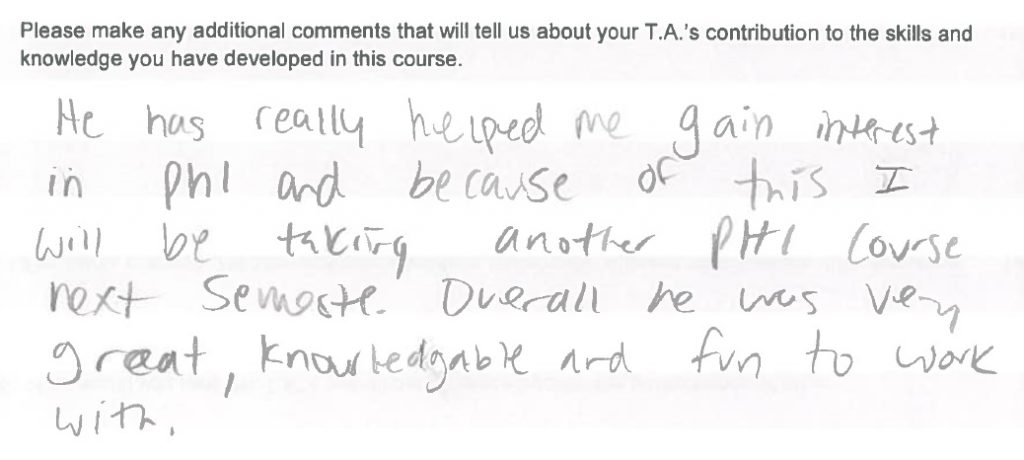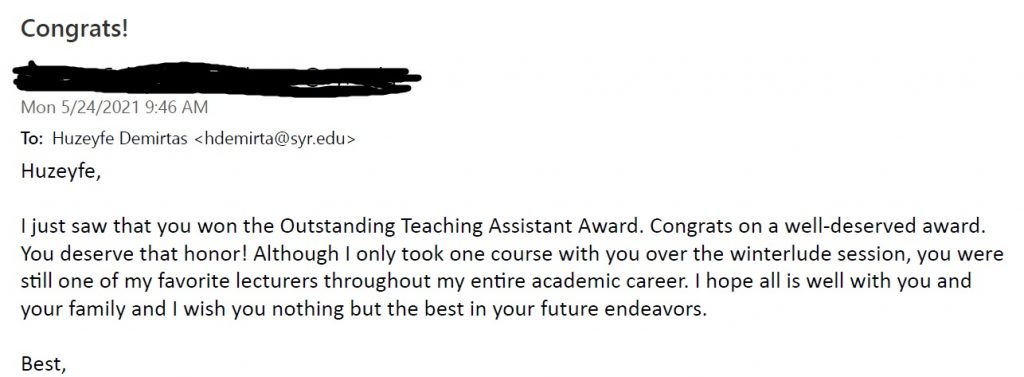Specialization
Responsibility, Free Will, Ethics of AI, Applied Ethics (esp. Environmental Ethics)
Competencies
Metaphysics, Epistemology, Classical Islamic Philosophy, Political Philosophy
Employment
2024 - Present
Harvard University, Department of PhilosophyPostdoctoral Fellow in Philosophy
2023-2024
Chapman University, Smith Institute for Political Economy and PhilosophyPostdoctoral Researcher
Education
2016 - 2023
Syracuse UniversityPhD Candidate & Teaching Associate
Dissertation: Responsibility Internalism and Responsibility for AI
Committee: Sara Bernstein, Ben Bradley (primary), Mark Heller, Hille Paakkunainen
2015-2016
SUNY FredoniaPostbaccalaureate in Philosophy
2004-2009
Firat UniversityBS in Computer Science Teaching
Publications
Forthcoming
'Against the Degree-Scope Response to Moral Luck, or A Farewell to Responsibility for Consequences'
Forthcoming
'Take a Stand, You Don't Have to Make a Difference'
2025
'AI Responsibility Gap: Not New, Inevitable, Unproblematic'
2024
'Drawing a Line: Rejecting Resultant Moral Luck Alone'
2022
'Moral Responsibility is Not Proportionate to Causal Responsibility'
2022
'Against Resultant Moral Luck'
2022
'Causation Comes in Degrees'
Public Philosophy
2020
‘Epistemic Injustice’
Talks
Speaker (*=refereed, +=invited)
'Responsibility Doesn't Require Alternative Possibilities'
- +SPAWN Returning Home: Ethics at Syracuse, Syracuse University (July 2025)
- *American Philosophical Association, Central Division (Feb 2025)
- Faculty Research Presentations, Harvard University (Oct 2024)
- Responsibility Workshop, Chapman University (Apr 2024)
‘AI Responsibility Gap: Not New, Inevitable, Unproblematic’
- AI and Data Ethics Workshop, Northeastern University (July 2024)
- *Midwest Ethics Symposium: Ethics and AI, The Prindle Institute for Ethics (Apr 2024)
- *Penn-Georgetown Digital Ethics Workshop, University of Pennsylvania (March 2024)
- Brown Bag Workshop, Chapman University (March 2024)
‘Current Debates in Ethics of AI and Technology’
- +Department of Computer Engineering,
Kütahya Health Sciences University (Dec 2024)
‘Take a Stand, You Don’t Have to Make a Difference’
- +SOPhiA 2023: Collective Harm and Responsibility in the Climate Crisis, University of Salzburg (Sep 2023)
- *Young Philosophers Read-Ahead Conference, DePauw University (Jan 2023)
- *International Society for Environmental Ethics, American Philosophical Association, Eastern Division (Jan 2023)
- *Young Philosophers Lecture Series, DePauw University (Sep 2022)
‘Drawing A Line, Rejecting Resultant Moral Luck Alone’
- *American Philosophical Association, Pacific Division (Apr 2023)
- *Free Will, Moral Responsibility, and Agency, Florida State University (Feb 2023)
- ABD Workshop Series, Syracuse University (Oct 2022)
‘Wrong but Praiseworthy, Right but Blameworthy’
- *Rightness, Ignorance, Uncertainty, and Praise Workshop, University of Southern California (June 2022)
- *72nd Annual Meeting of the New Mexico Texas Philosophical Society, Baylor University (Apr 2022)
- ABD Workshop Series, Syracuse University (Feb 2022)
’Causation Comes in Degrees’
- *American Philosophical Association, Eastern Division (Jan 2022)
- *Society for the Metaphysics of Science, 6th Annual Conference (Sep 2021)
’Against Resultant Moral Luck’
- *Summer School on Causation and Responsibility, University of Bern (July 2021)
- *Great Lakes Philosophy Conference—Ethics in Action, Siena Heights University (Apr 2021)
- +Philosophical Society of Fredonia, SUNY Fredonia (Nov 2020)
- *94th Joint Session of the Aristotelian Society and the Mind Association, University of Kent (July 2020)
- *International Conference on Ethics, University of Porto (June 2019)
‘Moral Responsibility Is Not Proportionate to Causal Responsibility’
- *American Philosophical Association, Eastern Division (Jan 2021)
- ABD Workshop Series, Syracuse University (Feb 2020)
- *AGENT, Ethics and Normativity Talks, University of Texas at Austin (Nov 2019)
- *20th Annual Pitt-CMU Graduate Student Philosophy Conference, University of Pittsburgh & Carnegie Mellon University (March 2019)
‘Stocker’s Schizophrenia, Alienation, and a Solution’
- *Fundamentality in Philosophy, The 7th International Philosophy Graduate Conference, Central European University (Apr 2018)
‘Against Reliabilism: In the Face of Skepticism’
- *Northwest Student Philosophy Conference,
Western Washington University (May 2017)
Commentator
Mar 2025
On Selim Berker’s ‘How Your Vote Determines a Winner: On the Metaphysics of Voting’
Edmond & Lily Safra Center for Ethics, Harvard University
July 2024
On Kendra Chilson’s ‘Keeping Our Hands Clean? Autonomous Systems and Diversion of Responsibility’
AI and Data Ethics Workshop, Northeastern University
Mar 2023
On Itamar Weinshtock Saadon’s ‘Responsibility, Causation, and Reversing the Order of Explanation’
Syracuse Graduate Philosophy Conference
Feb 2023
On Joshua Tignor’s ‘Theorizing About Moral Responsibility As Such’
ABD Workshop Series 2021, Syracuse University
July 2022
On Jules Salomone-Sehr’s ‘Complicity: A Minimalist Account for Our Maximally Messy Social World’
Vancouver Summer Philosophy Conference
Apr 2022
On Peter Zuk’s ‘Reconciling Experiential Theories of Pleasure’
72nd Annual Meeting of the New Mexico Texas Philosophical Society, Baylor University
Apr 2022
On Hannah Winckler-Olick’s ‘Simone de Beauvoir on Value-Creation as a Mode of Complicity’
Centennial Conference of the Creighton Club
Jan 2022
On David Sackris and Rasmus Rosenberg Larsen’s ‘Are There Moral Judgements?’
APA Eastern Division Meeting 2022
Oct 2021
On Joshua Tignor’s ‘Moral Growth and Moral Responsibility’
ABD Workshop Series 2021, Syracuse University
July 2021
On Alex Kaiserman’s ‘Responsibility and the ‘Pie Fallacy’’
Summer School on Causation and Responsibility, University of Bern
Apr 2021
On Perry Hendricks’s ‘The Impairment Argument Reconsidered’
Syracuse Graduate Philosophy Conference
Mar 2019
On Caner Turan’s ‘On Greene’s Evolutionary Challenge to Deontological Ethics’
Syracuse Graduate Philosophy Conference
Works in Progress
A paper on moral rightness and wrongness versus moral praise and blame
Under Review
A paper about the flicker defense against Frankfurt-style cases
Under Review
'Responsibility Doesn't Require Alternative Possibilities'
Polished Draft
'(How) Does Accountability Require Explainable AI?'
Draft
Teaching
Harvard University (Modules Embedded into Undergrad/Grad Computer Science Courses)
Spring 2025
Ethics—Deep Integration (Co-created)
CS50: Introduction to Computer Science
Spring 2025
Ethics Bowl
CS1060: Software Engineering with Generative AI
Spring 2025
Distributive Justice
CS1360: Economics and Computation
Fall 2024
Ethics of Technological Unemployment
ES159/259: Introduction to Robotics
Fall 2024
Ethical Implications of Interpretability (Co-created & Co-run)
CS2822R: Topics in Machine Learning - Interpretability
Fall 2024
Ethics of Hacking Back
CS2630: Systems Security
Chapman University (Lead Instructor)
Spring 2024
PHIL303: Environmental Ethics
Syracuse University (Lead Instructor)
Spring 2022/23
PHI394: Environmental Ethics
Fall 2023
PHI191: The Meaning of Life
Spring 2020, Summer 2021/22/23
PHI251: Logic
Spring 2021
PHI383: Free Will
Winter 2021
PHI200: Happiness and Meaning in Life
Fall 2020
PHI197: Human Nature
Summer 2020
PHI107: Theories of Knowledge and Reality
Fall 2019
PHI192: Introduction to Moral Theory
Syracuse University (Teaching Assistant)
Fall 2021
Human Nature (Christopher Noble)
Spring 2019
Theories of Knowledge and Reality (Janice Dowell)
Fall 2018
Logic (Mark Heller)
Fall 2017
Introduction to Moral Theory (David Sobel)
Fall 2017
Introduction to Moral Theory (Hille Paakkunainen)
Spring 2017
Human Nature (Neelam Sethi)
Fall 2016
Theories of Knowledge and Reality (Robert Van Gulick)
Honors & Awards
2022
Summer Research Fellowship
Syracuse University
2021
Outstanding Teaching Assistant Award
Syracuse University
2016
The Philosophical Society, Student Achievement Award
SUNY Fredonia
Service
Referee
American Philosophical Quarterly, Australasian Journal of Philosophy, Ergo, Erkenntnis, Ethics and Information Technology, European Journal of Philosophy, Journal of Philosophy, Journal of the American Philosophical Association, Synthese
Thesis Advising
Harvard University
Diana L. Yue's senior thesis, "Thinking Outside the Black Box: Justifying Beliefs in the Age of Opaque Autonomous AI Systems." (Spring '25)
Thesis Committee
Harvard University
Peter A. H. Jin's senior thesis, "Forgiveness, Atonement, and The Edge of Desert: Responding Morally to What We Don’t Deserve." (Spring '25)
Lead
Harvard, Embedded EthiCS Research and Engagement (Fall 2025)
Co-Lead
Harvard, Embedded EthiCS Teaching and Learning (Spring 2025)
Co-Lead
Harvard, Embedded EthiCS Research and Engagement (Fall 2024)
Co-Organizer
Responsibility Workshop, Chapman University (April 2024)
Judge
Southern California High School Ethics Bowl Competition (2024)
Senator
Syracuse Graduate Student Organization (2020-2021)
Co-Organizer
Syracuse Graduate Philosophy Conference (July 2020)
Graduate Coursework
Ethics (*=audit)
Moral and Political Philosophy (Hille Paakkunainen)
Constructivism in Metaethics (Hille Paakkunainen)
Anti-Realism and Pragmatism in Ethics (Nate Sharadin)
Anti-Theory in Ethics (Independent study with Hille Paakkunainen)
Ethics of Nudging (Independent study with Ben Bradley)
*Motivation (Hille Paakkunainen)
*Animal Ethics (Ben Bradley)
*Free Will (Mark Heller)
*Prudence (Ben Bradley)
Epistemology (*=audit)
Topics in Contemporary Epistemology (Nate Sharadin)
Language, Epistemology, Mind, Metaphysics (K. McDaniel, K. Edwards)
*Epistemology (Hille Paakkunainen)
Metaphysics
Beyond the Modal: Essence and Potentiality (Kris McDaniel)
Metaphysics of Ethics (Ben Bradley, Kris McDaniel)
Political Philosophy
Justice and Equality (Ken Baynes)
Philosophy of Social Sciences (Ken Baynes)
History of Philosophy
History of Philosophy (Frederick C. Beiser)
Classical Arabic Philosophy (Kara Richardson)
Logic and Language
Logic and Language (Michael Rieppel)
Concepts (Kevan Edwards)

